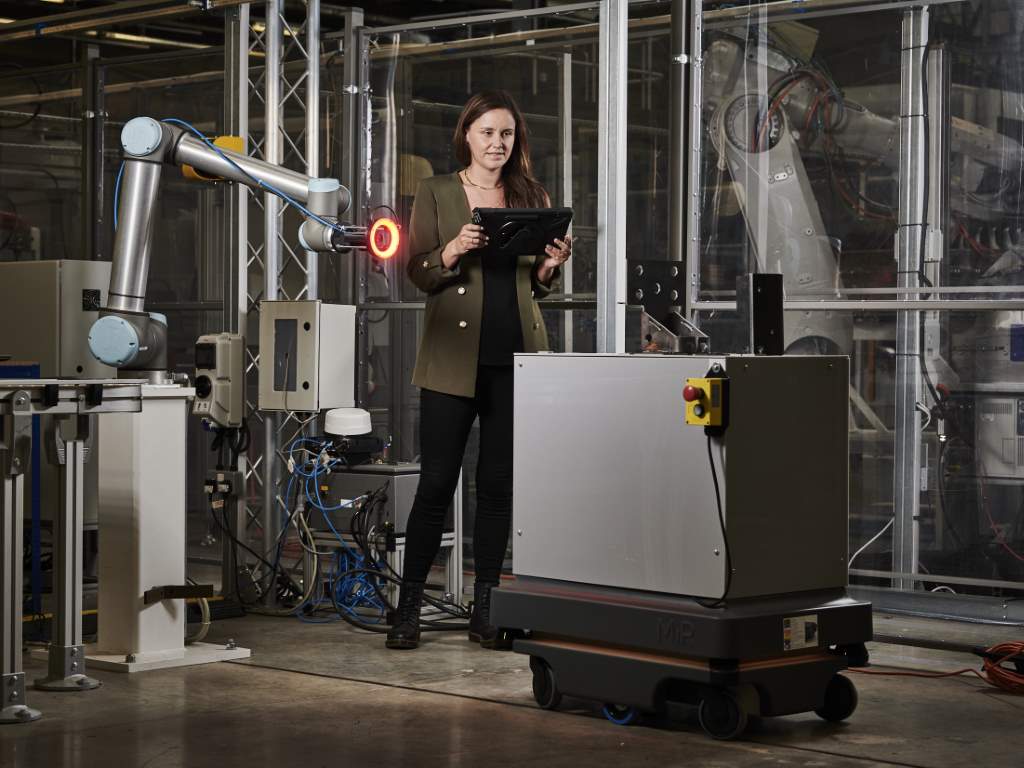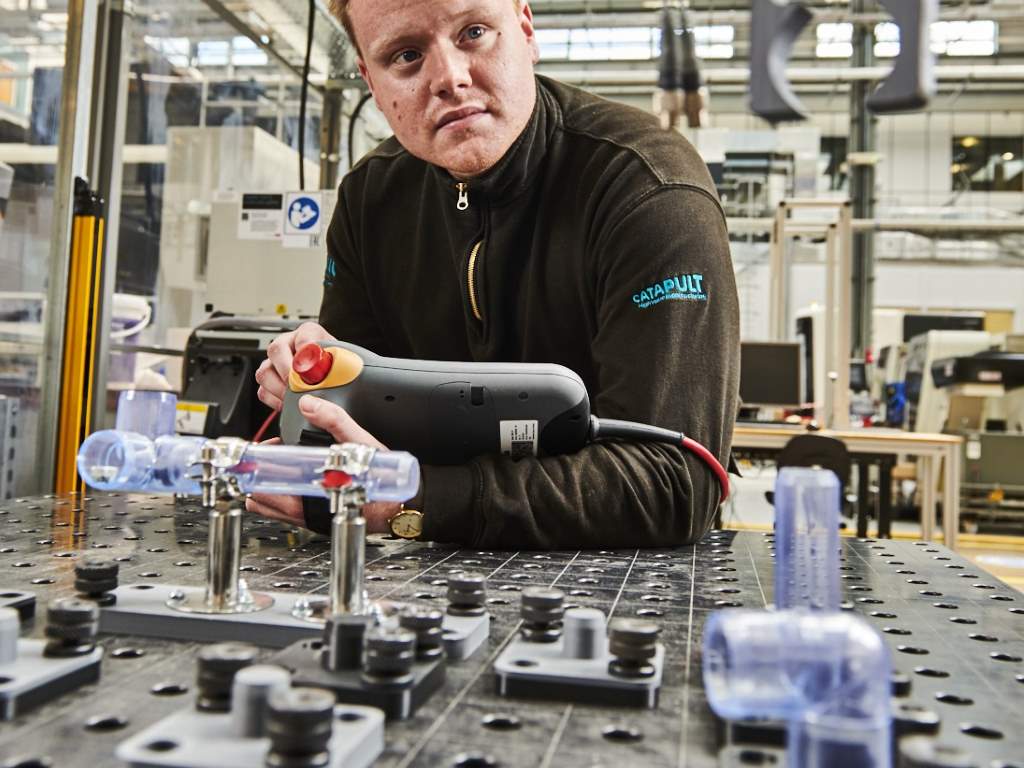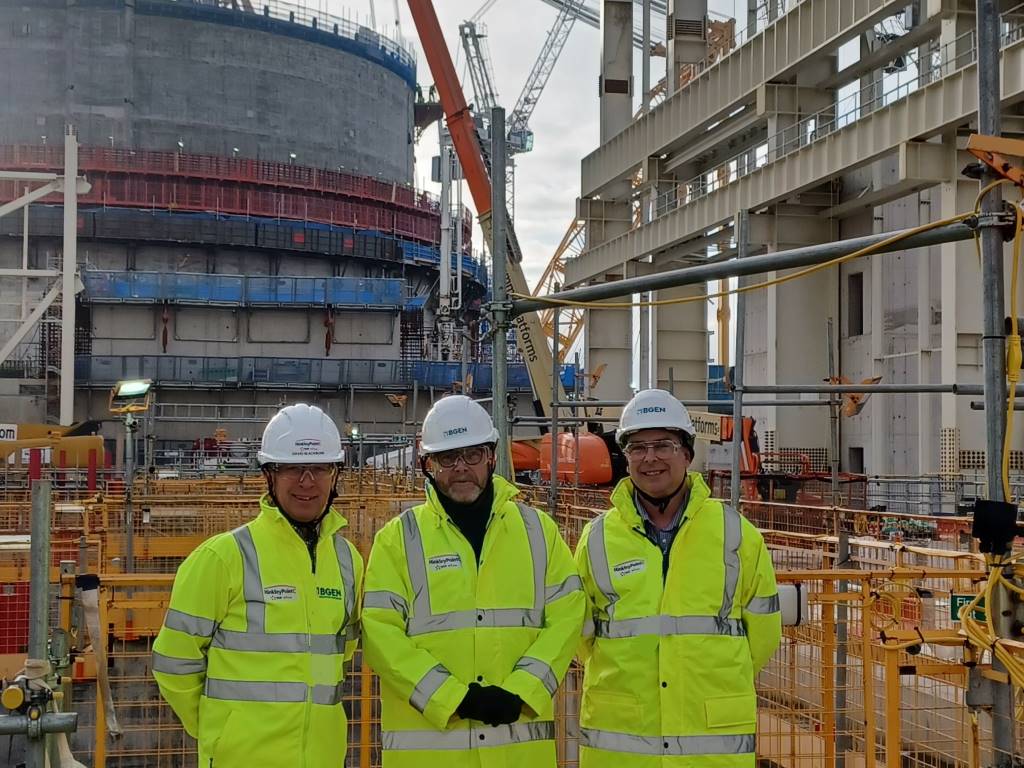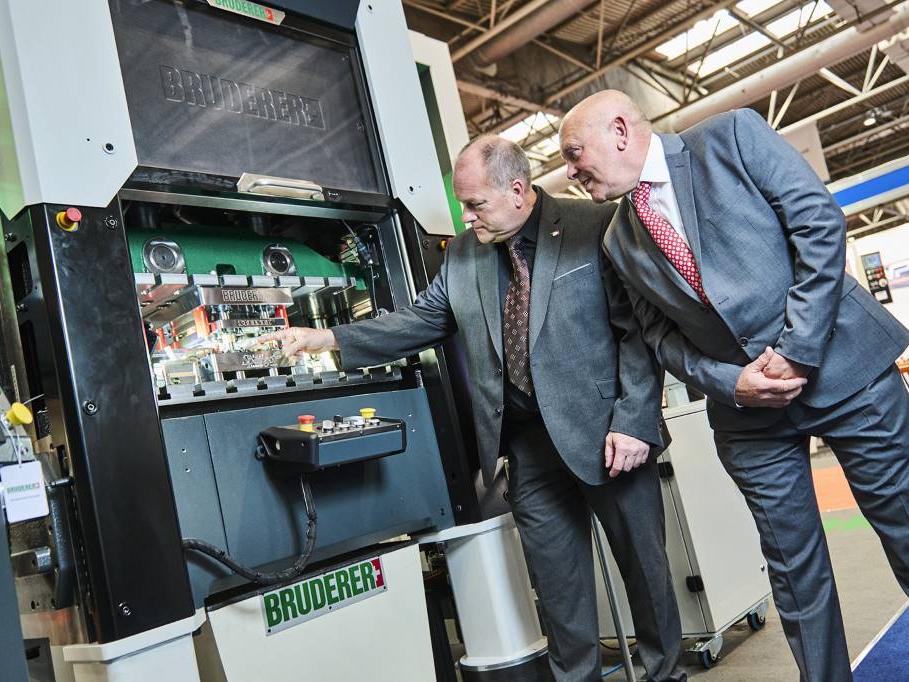Getting on board with automation

If UK manufacturing is to close the persistent productivity gap with its competitors, it needs to adopt more robotics and automation. In this Q&A article Mike Wilson, the Manufacturing Technology Centre’s chief automation officer, talks to Ed Hill about its role in promoting and supporting companies taking their first steps on the automation journey.
Q) What is the Manufacturing Technology Centre’s role in promoting automation and robotics in manufacturing?
The Manufacturing Technology Centre (MTC) was created 10 years ago with the objective of bridging the gap between university research and exploitation in industry, the so called ‘valley of death’. Automation and robotics have always been a key activity within the MTC both in terms of developing technologies and applications and also assisting companies to successfully employ these technologies.
Our four key activities for automation and robotics are: promoting the benefits of automation and helping businesses successfully procure commercial solutions by providing independent, experienced advice and support; developing application solutions where they are not available commercially; working on the development of technologies two to five years in advance of industry to provide demonstrators and to develop the expertise to assist with these technologies for industry; working with the automation supply chain – particularly the system integrators – to develop their capacity and capability to support the needs of UK industries.
Q) A recent MTC report shows how automation can benefit productivity but these technologies are not new. Why has UK industry been slow in adopting it more widely?
There are a number of reasons: these include the availability and preference for so called ‘low cost’ labour that has come into the UK from Eastern Europe; our short-term approach to investment and a general cultural attitude that keeps our older equipment running for as long as possible.

Our employment laws have also allowed the manual workforce to be easily flexed to suit production requirements, for example, by the use of agency labour or zero hours contracts. This flexibility is not available in many European countries and means investment in automation can be less attractive in the UK. There are also historical perceptions that these solutions are expensive and need highly skilled personnel – both of which are no longer true – meaning many companies believe the technology may be fine for the large-scale automotive industry but not appropriate for them.
Q) Have we reached a tipping point where companies must adopt more automation to deal with the shortage in skills and labour?
There are widespread labour shortages throughout manufacturing and this is unlikely to improve because the average age in many businesses indicates we will be losing many skilled and experienced workers over the next ten years due to retirement.
There is also a growing trend towards reshoring manufacturing to address the resilience challenges highlighted by supply chain issues during the pandemic. This new manufacturing capacity must use the latest automation technologies, not only to address the labour availability issue, but also to be competitive.
The recent change in access to labour, driven by the combination of Brexit and the pandemic, has certainly changed attitudes towards automation, with many businesses now investigating what they might be able to implement. However, there is still a reticence to make large scale investments, which is probably driven by the lack of previous experience and knowledge.

Q) Is automation really an affordable option, especially for smaller SMEs?
The cost of automation is lower than ever before. The cost of finance is also low. The Government provides a number of tax benefits which are of assistance, including the Annual Investment Allowance, the super deductions for new plant and machinery, as well as the R&D Tax Credit. Therefore, the financial conditions are probably the best they have ever been to support investment.
To ensure businesses can maintain their competitiveness it is important they improve productivity which does require investment. There may need to be a justification provided to the bank to explain and support the investment and that can be achieved by developing an automation strategy to explain the vision for the next five years, what stages will be implemented, and what the investment in automation will bring.
Most companies that invest in one robot and see the rewards will then invest in more. This is true even of small businesses. It is often the taking of the first step and having the confidence to invest that is the biggest challenge.
Q) How do you help inexperienced companies embrace automation? How can you help them explore all the options from robotics to flexible and fixed systems?
It’s important that due diligence is undertaken. A key first step is to select the best application as the starting point. Many companies will be drawn to an operation that gives them the most problems, but this is often difficult to automate and therefore increases the risk and the learning curve the business and its staff have to undertake. It is often better to find a simpler application which provides the first step on the automation journey. This may not provide the best return on investment but will be lower risk and provides an easier learning curve. The objective being to move on to the more difficult applications later, based on early successes.

It is often beneficial to gain independent advice which can provide guidance both as to the right application to progress as well as other changes that may be required to working practices or processes to ensure the automation will achieve the defined objectives. The High Value Manufacturing Catapult, via centres such as the MTC, is a source of this independent advice. There is no desire to sell any particular type of solution nor any preference for specific vendors. We are always open to enquiries and our support is very much aimed at helping businesses make the right decisions for their specific circumstances and requirements.
Q) Where do you stand on the automation versus jobs argument? Does it actually have a role in promoting engineering as an attractive career?
Robots and other devices automate tasks rather than jobs. The desire is to automate the dirty, dangerous and mundane operations so staff can be utilised where their skills add more value to the product. Companies that apply automation improve productivity and become more competitive which leads to growth and new jobs, and these are often higher skilled and better paid.
Robots can play a role in encouraging schoolchildren to follow engineering as a career. As well as being exciting, robots provide an excellent teaching tool, incorporating software, mechanics, electrics and electronics as well as the option to design and build. There are a number of robot-based competitions, both at primary and secondary school level. The major problem comes after school. We need to be equipping colleges with robots to provide an opportunity to continue the interest and develop engineering careers.
Q) How are you encouraging the world of finance to get a better understanding of the benefits of automation for manufacturing businesses?
We continue to work with the banks to educate their staff on the benefits of automation but there is still work to be done. We also need to encourage the development of finance models such as leasing. There are opportunities to lease robot and automation solutions but these are not commonplace. Leasing has significant potential, particularly for SMEs, because the cost of a lease, spread over five years, compared to the savings means the business gains a positive cash impact the day the system starts operation.

Q) What role do you think newer technologies such as collaborative robots (cobots) have to play?
Cobots are generating significant interest as they are seen as a simpler step than an industrial robot system. There are significant numbers being installed and this is a positive move because it provides businesses with a first step on their automation journey. Generally, the benefit is due to their ease of programming and operation rather than the collaborative aspect. However, it is most important a risk assessment is undertaken for the complete application as it is quite possible the tool carried by the cobot or the machine the cobot works with needs to be guarded.
Q) What role can government and other stakeholders play in bringing more automation into UK manufacturing?
This is not a challenge that can be addressed by one party alone. We need all stakeholders to work together with improved networks providing the opportunity to share knowledge and experience as well as support. It is particularly important to provide easy access for SMEs for advice and assistance as they provide the largest opportunity for increased automation.
The Government can assist by providing political support, including promotion of the benefits for the growth of UK manufacturing and for the increased use of automation within it. It can also help by supporting specific initiatives to address barriers such as developing skills.
A link to the MTC’s report on automation can be found here.













